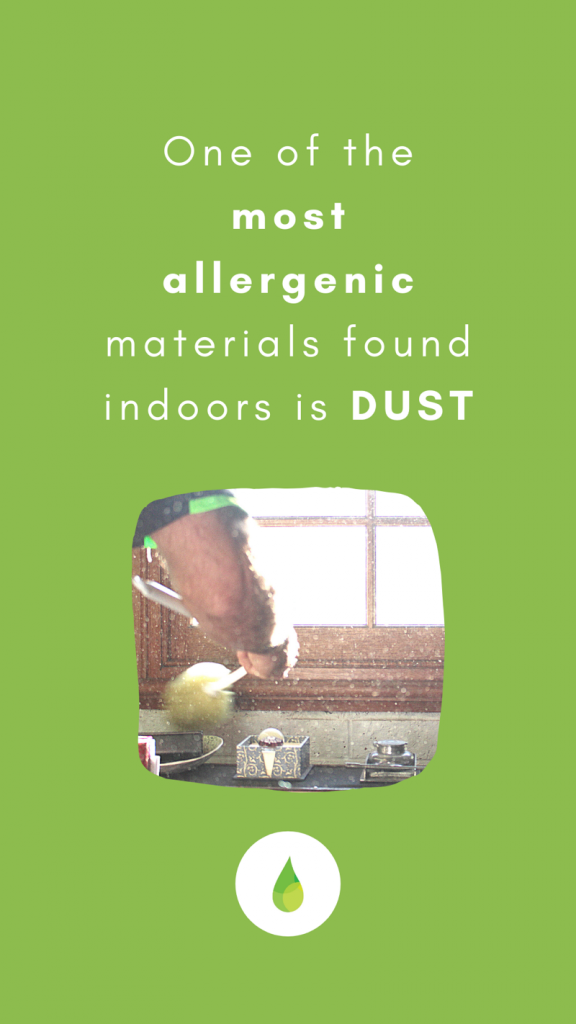We take a closer look at the top ten issues and outline how to solve them.
Family life is busy. Families are often overwhelmed by the many time consuming things they need to do every week and at the very end of the list is the cleaning. Fair enough, it’s a difficult chore and one that can feel like groundhog-day.
Yet the pride of the family home is enhanced greatly by having it tidy and clean.
This is one reason why so many families outsource their cleaning and yet the levels of satisfaction with the available cleaning services on offer is often a source of frustration. But how do you go about finding a good cleaner and how can you make sure that the cleaning service they provide remains consistent over time? Before we can jump to the solution, we really need to spend some time analysing the problem.
- Issue one – Price
The first thing to know about cleaners and cleaning companies is that many of them are competing primarily on the basis of price. This leads to a situation where many cleaning service operators try to get the sale by offering a cheap price to clean your house when you request a quote. Once they are in the house, they often over-service the customer on the first couple of cleans but then they claw back their profits by reducing the amount of time they spend in the home increasingly over the long term. Subsequently the quality of service is also reduced and roughly 40% of customers will stick with these cleaners for longer than they should due to inertia. Most cleaning companies make a business out of retaining this sub set of customers and doing quick cleans with many cleaners and a high staff turnover. The truth is that a great cleaner is going to have options to do all other sorts of work. Therefore, a good cleaner will expect to be well paid meaning that great cleaning and hence excellent value for money does not often equate with cheap.
- Issue two – Chinese Whispers
It is standard human nature that when we receive less service than what we expect we like to clarify and communicate our expectations to the front-line staff providing the service. In this case that is those people who are cleaning our home. The issue with many cleaners is that they are doing this work not out of choice but out of necessity; often because their skill set does not always enable them to do higher paid work. Often English is a second language and they can feel embarrassed that the Australian accent can be difficult to understand. Hence when a client is asking them to remember this and that, their reflex response is to nod as if they get it and they will do it. Time and again these things are not completed and the solution seems to logically be to try and tell them again with more energy which can create a frustration and resentment spiral which is not a great energy to come home to.
- Issue three – Cleaner turnover
This issue is closely linked to issues one and two above as price driven economics lead to low levels of client and staff satisfaction and regular turnover of staff who are often exploited by the service provider. It’s a source of frustration for clients to have to retrain these staff themselves and each subsequent cleaner only to have that intellectual property disappear with the new face that randomly cleans their home on each successive visit.
- Issue four – Customer expectations
Clients who expect cheap prices and high-quality cleaners need to take another look at their own expectations. It’s like me having the budget to buy a holden commodore but wanting a Ferrari. The Ferrari salesman will have none of it and neither will a high-quality cleaner who is in high demand. Quality costs a little more and a great job is the ultimate value proposition.
- Issue five – Hourly rates
It’s natural to want a great clean at the most economical price but you will rarely see a bead of sweat from a cleaner who is paid by the hour. They will naturally drag the job out. So how do you compare quotes? Well it’s not straightforward nor is it easy and not all cleaners are created equally, use the same equipment or follow the same method. But comparing hourly rates is working on the assumption that all cleaners are providing a homogenous service. They are not. Some are fitter than others. Some care more than others. Some follow a system, are smart and hardworking and take pride in their work.
- Issue six – Fine particle dust
This one is perhaps the most perplexing. It involves microscopic particle dust so fine that the naked human eye can’t even see it. It’s the dust that we sometimes see glitter in the shaft of sunlight when we move the curtains in the morning. When disturbed with traditional cleaning methods this dust goes airborne and can stay suspended for up to five days finally resting again when the cleaning effort is well and truly finished. And so it circulates and accumulates and frustrates ongoing cleaning efforts often without us even knowing it. But we can feel it and it subconsciously feeds that frustration of never having the house really very clean.
- Issue seven – Method
Most cleaners clean without a strategy. Some clean simultaneously as part of a gang each carrying out their own cleaning function and getting in and out quickly like a swat team. Others clean room by room. Some clean with just a dry cloth and others use the same dirty mop head from one house to another. There is no method to this madness and that’s the problem. Cleaning is just another challenge that can be solved with smart thinking and a well thought out method. So rather than just expect that your cleaners know what they are doing. Ask them. What’s your cleaning method?
- Issue eight – Energy
The subject of energy is the most intriguing and potentially the most confusing issue. It’s also a paradox. A dirty and dusty house sucks away our energy. And we need energy to clean effectively. An effective and productive cleaning session and the subsequent clean home will feed us energy. We also need to have a method and a strategy to make our cleaning effective with a focus on clutter and dust extraction. All of this probably feels like hard work and it’s just easier to grab the duster and get cleaning yourself. Yet ironically the energy we invest in getting everything correct will actually feed back more energy by reducing the amount of energy we leak out be cleaning unproductively. Not an easy concept to get your head around but a very important one indeed.
- Issue nine – The customer is king
It’s another paradox that when we have a one sided power struggle in any relationship both parties lose. And in the case of cleaning it is ironic but meeting the customers’ needs requires us to first focus on meeting the cleaners needs. A happy cleaner makes a happy customer. It’s a relationship of equals and both parties need to be happy with the other. The best and longest lasting customer/cleaner relationships are the ones where both parties work together towards a win-win situation. That way not only does the cleaner do all those things clearly expected consistently well every visit, they also imprint the house with a lovely energy that families can feel and the cleaner can drive home with a big smile and a warm heart and a stress free life.
- Issue Ten – Clutter
Clutter makes cleaning so difficult. It collects dust and collects stagnant energy and can be the bane of a consistently clean house as your cleaner will usually go around it creating “dead-zones” in the house that create a stagnant feeling of “stuck-ness” that gets in the way of effective and efficient cleaning.
Phew! Finally the solutions.
Make sure you; Get a list of what will be cleaned for your agreed to price and ask for a 24 hour guarantee that this is what you will be getting and if you don’t get it what are the repercussions for the cleaning service provider and how will they rectify it? Provide photos. Get this in writing at the time of getting your quote and hold them to it.
The fundamental stress of communication is removed by having a job sheet that does not rely on people’s interpretations of language and the trap of “he said/she said” but rather is committed to in writing and agreed to by both parties and can be added to and amended by mutual consent over time. This should be controlled and administered by the operations manager of the cleaning company and agreed to in writing. Pay for the job as detailed by the list and not by the hour. Whether it takes all day or is done instantly by a fairy godmother with a magic wand it is the end result that you should be paying for not the length of time it takes.
Pay your cleaner well and make sure they are happy to work for the company as you want the same person over a long period of time. Ask the operator what the average length of stay is for their cleaners. Check your expectations especially if you feel like you are always changing cleaners and never finding what you’re looking for. Are you expecting a sultan’s job on a pauper’s budget? Is this even possible? We need to be self-aware as the days of good cheap cleaners are a thing of the past. Respectfully, if you’re not getting satisfaction over time and using multiple suppliers the pattern could have more to do with the customer than the cleaner.
Dust is harder to deal with but essentially your cleaner needs to have an answer for this. How will they deal with the microscopic dust? Do they even think about it? Do they have a method? Do they dry wipe or use a wet washing method? Do they clean room by room or are they using a system? How does their system work? There must be a method or else you are paying in part for unproductive labour. How do you feel when dealing with the operator? Do you like their energy? Do they feel honest? Ask questions and if you’re not satisfied move on. This is a long-term relationship and first impressions matter. Prod and probe and ask every question you can think of. And expect them to answer patiently. When the cleaners arrive treat them well. Make them a coffee. Be kind and care about their wellbeing. This way they will care for you if they are decent people. If they are not you will soon know it if your side of the street is clean.
Lastly is the hardest part. Dealing with the clutter. The aim is to become minimalist to enjoy the most productive and cost-effective cleaning relationship. There is no doubt that cleaning in a cluttered house is very difficult, time consuming and largely unproductive.
We can become so emotionally attached to stuff that it’s hard to deal with it and can feel like a mountain to climb. You don’t need to throw it all out in one herculean task nor in one big confronting and emotional weekend. As with all big tasks, deal with it piecemeal. Make one small step and then rest. Put the clutter in boxes and stack it against a wall in an out of sight back room to be dealt with slowly over time. The energy that will be released by having the other areas of the house cleaned will be easily redeployed to deal with the clutter piecemeal at a later stage over time. Be gentle with yourself.
So our advice in a nutshell is;
- Get a list
- Agree to the price
- Have a 24 hour guarantee
- Get it/put it in writing
- Work to/from an agreed to job sheet
- Pay for the list, not by the hour
- Pay a little more for consistent quality
- Check your expectations
- Deal with the dust
- Reduce clutter levels
Michael Sweet is the founder of 1800 CLEANER and has been cleaning for over 30 years.

















